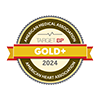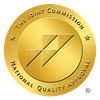
July is Medication Adherence Month
Always use medication as directed.
Practicing a safe medication routine means taking your medications exactly as they are prescribed. It is critical to take the right dose, at the right time, in the right way. Taking medicines incorrectly could cause them to be ineffective or even dangerous.
Establishing a safe medication routine will help you build habits that protect you and keep you healthy as you take your prescribed medications.
Here are some helpful hints to help you create a safe medication routine:
- Read your medication label. Becoming familiar with your medication label allows you the reassurance of knowing exactly how much of a medication to take and how often. You’ll find instructions on how to safely store your medication. You can also find warnings on the label to help you protect yourself as you make your medication a part of your daily routine.
- Check the ingredients. Your doctor or pharmacist can provide you with a list of your medication’s ingredients. Review it for anything you may be allergic to and do not be afraid to ask additional questions if necessary. Make sure your doctor and pharmacist know of any drug allergies you have. Understanding the ingredients helps you protect and advocate for yourself as a patient.
- Know the expiration date. It is important to understand how long you should continue taking a medication. Never take a medication that has expired.
- Do not skip doses. Medication directions are designed specifically for the drug you are taking. To be safe and ensure the medication works properly, you must take it according to the instructions.
- Know what to avoid. Certain medications are known to have potentially dangerous reactions with other substances. It is important to know which foods, beverages, other drugs, supplements or over-the-counter medicines to avoid while taking your medication. Creating a reliable medication routine will help you build habits that keep you safe from drug reactions.
- Ask your doctor or pharmacist. Even with a medication you’ve taken for years, it is important to discuss it with your doctor and pharmacist regularly. They can make you aware of any new data that may be relevant and make sure you’re aware of warnings or potential side effects that may exist. It’s also important that they’re aware of your experience while taking the medication and how it affects your health condition and daily life.
- Never share medicines. Prescribed medications can be dangerous if your use hasn’t been evaluated by a professional. Never accept prescription medications from someone else and never share the medications you’ve been prescribed.
- Organize your medicine. Having a safe place in your home where you keep your medications is an essential part of a safe medication routine. Storing medications as directed is important in making sure your medication remains effective through its expiration date. Your safe medication routine will also keep your medicine away from children or anyone who could mistakenly ingest it.
- Never take medicine in the dark. When taking or administering any medication, it’s critical to view the label to make sure you’ve reached for the right medicine bottle and know the exact recommended dose. Taking this safety glance will also help remind you if or how soon the medication will need to be retaken.
- Write them down. Keep a written record of each medication you are taking, including prescription drugs, over-the-counter medicines, herbal and other supplements. Make sure to note the exact name of each drug and the number of milligrams per unit. Keeping a medication list in your wallet, purse or cellphone will prepare you for any questions your doctor or pharmacist may ask and protect you in the case of an emergency.
Following these tips for developing a safe medication routine will keep you informed and safe as you take your medications.











